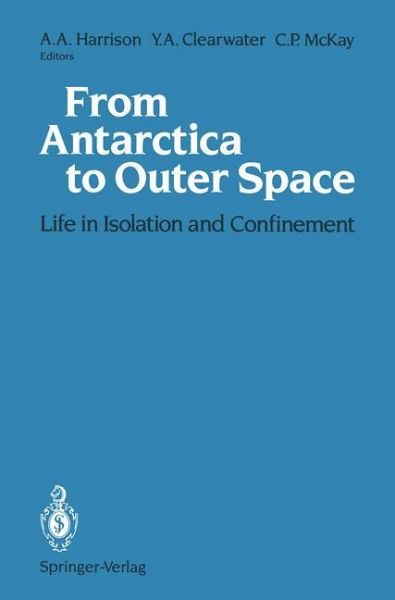
From Antarctica to Outer Space
Life in Isolation and Confinement
Mitarbeit: Gunderson, E.K.Eric; Herausgegeben von Harrison, Albert A.; Clearwater, Yvonne A.; McKay, Christopher P.

PAYBACK Punkte
38 °P sammeln!
From Antarctica to Outer Space: Life in Isolation and Confinement aims to revitalize and encourage behavioral research in spaceflight as well as in polar and comparable settings. It comprises a broad collection of papers that evolved from presentations at a three day conference entitled The Human Experience in Antarctica: Applications to Life in Space (The Sunnyvale Conference). This conference was co-sponsored by the Division of Polar Programs of the National Science Foundation and the National Aeronautics and Space Administration and held in 1987. The book provides, through firsthand account...
From Antarctica to Outer Space: Life in Isolation and Confinement aims to revitalize and encourage behavioral research in spaceflight as well as in polar and comparable settings. It comprises a broad collection of papers that evolved from presentations at a three day conference entitled The Human Experience in Antarctica: Applications to Life in Space (The Sunnyvale Conference). This conference was co-sponsored by the Division of Polar Programs of the National Science Foundation and the National Aeronautics and Space Administration and held in 1987. The book provides, through firsthand accounts and research reviews, an introduction to the human facet in isolated and confined environments such as Antarctica, outer space, submarines, and remote national parks. The book discusses some of the theoretical issues underlying research on isolated and confined people, thus demonstrating the applicability of certain general theories of behavior. It also focuses on basic psychological and social responses to isolation and confinement. Studies whose primary purpose is to explore the effects of selection, training, and environmental design on human behavior and mission outcomes are discussed.












